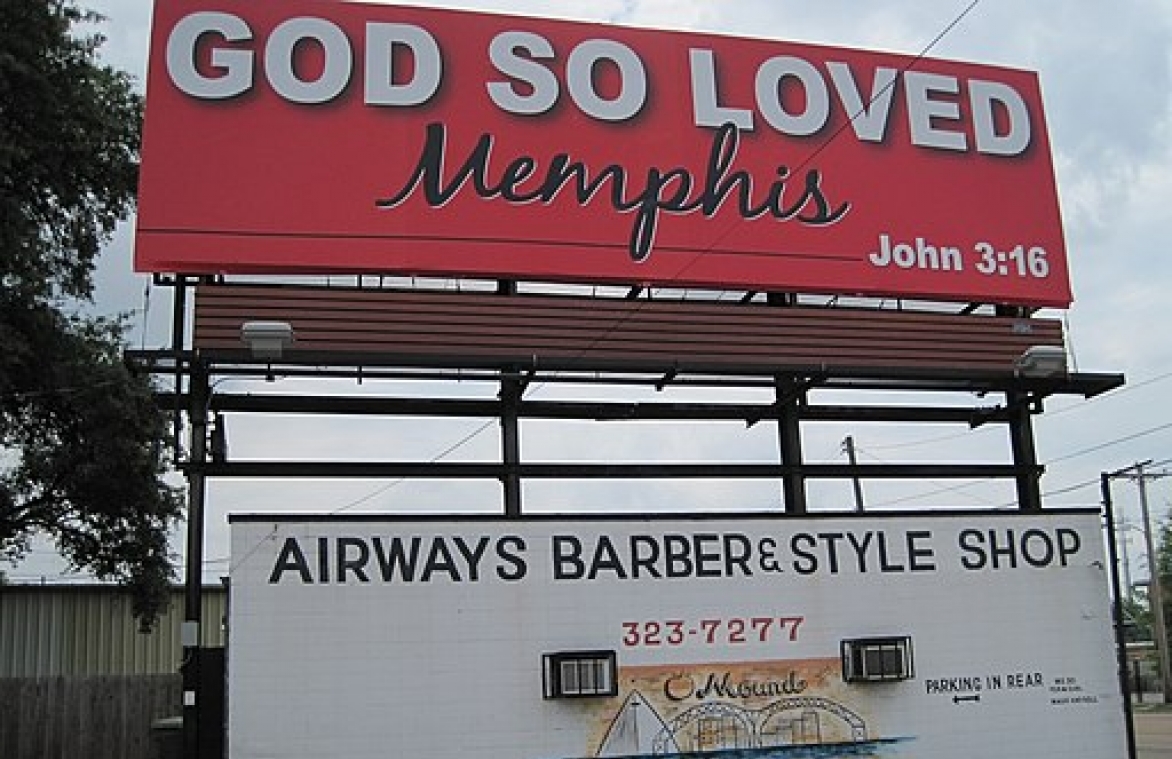The Tennessee Billboard Act and its selective treatment of on-premises signs violates the First Amendment, a federal appeals court panel has ruled.
The panel recognized that the Billboard Act’s different treatment of signs based on whether or not they were “on-premises” signs signified that the Billboard Act was a content-based restriction on speech.
Tennessee law requires permits for billboards in some locations, based on their content
Tennessee passed the Billboard Regulation and Control Act of 1972 in response to the U.S. Congress’ Federal Highway Beautification Act, which regulated the location of billboards near highways. The Tennessee law also limits billboards near highways, requires operators to obtain permits, and imposes other regulations.
However, the Tennessee Billboard law contains a so-called “on-premises” exception which allows such signs to be posted with a permit. An “on-premises” sign is one that is located on the same premises as the activity or property advertised and the purpose of the sign is the identification of services or products at that very location.
Man challenged law after he put a patriotic message on his billboard without a permit
William Harold Thomas Jr., the owner of many billboards, had been embroiled in litigation in Tennessee over whether he needed to obtain a permit for a billboard erected in a vacant lot. For many years, Thomas had a commercial billboard on the lot even though he did not have a state permit.
In 2012, Thomas changed the billboard from a commercial message to a noncommercial one with a patriotic message in support of the 2012 U.S. Olympic Team. The Tennessee Department of Transportation still maintained that Thomas needed a permit.
In 2013, Thomas sued in federal court, contending that the Billboard Act, and specifically its “on-premises” exception, unconstitutionally restricted his free-speech rights. A federal district court agreed, reasoning that the only way to determine whether a sign was “on-premises” was to reference the content of the billboard. The court also held that the law was not narrowly tailored to achieve the billboard’s law purposes.
6th Circuit panel upholds lower court decision that ruled TN law is unconstitutional
On appeal, a three-judge panel of the Sixth U.S. Circuit Court of Appeals agreed in Thomas v. Bright. Writing for the panel, Judge Alice Batchelder identified the billboard law as a “blanket, content-neutral prohibition on any and all signage except for speech that satisfies” the on-premises exception.
But, to Batchelder and her colleagues, this selective exception for certain speech, transformed the law into a content-based law subject to strict scrutiny — the highest form of judicial review. “Clearly, this regulatory scheme requires Tennessee officials to assess the meaning and purpose of the sign’s message in order to determine if the sign violated the Act,” she explained. “There is no way to make these decisions without understanding the content of the message.”
The Sixth Circuit relied heavily on the U.S. Supreme Court’s decision in Reed v. Town of Gilbert (2015) in which the High Court explained that a law can be content-based even the state did not have an insidious motivation to discriminate based on content.
The Sixth Circuit reiterated that “if the off-premises/on-premises distinction hinges on the content of the message, it is not a content-neutral message.”
Court: Law not narrowly tailored to address state’s interest in regulation
Because the law is content-based, the state of Tennessee had to show that its law satisfied strict scrutiny, which means that the state must show that its law furthered compelling government interests in a very narrowly drawn way.
Tennessee offered three purported compelling interests:
- public aesthetics;
- traffic safety; and
- the safeguarding of property owners’ constitutional rights.
The Sixth Circuit panel determined that public aesthetics was not a compelling governmental interest. It then addressed the traffic safety rationale. The panel reasoned that the state was not actually motivated by traffic safety when it passed the billboard law.
In any event, the Sixth Circuit determined that — even if any of these three interests were compelling — the law was not narrowly tailored. The Sixth Circuit reasoned that the law was discriminatory and disfavored non-commercial speech over certain commercial speech.
Batchelder provided a hypothetical involving a pet store that advertises a commercial message — “We have the most dogs around — and can always pump out more! Come get one!” – with a pet store that advertises an ideological, non-commercial message — “Puppy Mills are Animal Cruelty!”.
Under Tennessee’s law, the billboard owner with the commercial message would be exempt from a permit, but the billboard owner with the noncommercial, ideological message would need a permit.
“By placing a burden more heavily on ideological than on commercial speech, the Billboard Act represents a peculiar inversion of First Amendment values,” the Sixth Circuit panel explained.
David L. Hudson Jr. is a First Amendment Fellow at the Freedom Forum Institute, and a law professor at Belmont University who publishes widely on First Amendment topics. He is the author of a 12-lecture audio course on the First Amendment titled “Freedom of Speech: Understanding the First Amendment” (Now You Know Media, 2018). He also is the author of many First Amendment books, including “The First Amendment: Freedom of Speech” (Thomson Reuters, 2012) and “Freedom of Speech: Documents Decoded” (ABC-CLIO, 2017).

